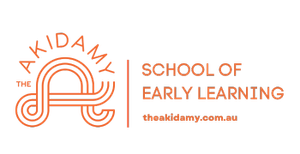Social Media for Staff Policy
Policy Content
We recognise both the benefits, and challenges, of using Social Media and other social media platforms in the early childhood setting. This policy has been developed to provide employees, families, volunteers and students with standards of use as they engage in conversations or interactions using social media for official, professional and personal use.National Quality Standard (Nqs)
| QUALITY AREA 7: Governance and Leadership |
|---|
| 7.1.1 | School philosophy and purposes | A statement of philosophy guides all aspects of the school’s operations. |
| 7.1.2 | Management Systems | Systems are in place to manage risk and enable the effective management and operation of a quality school. |
| 7.1.3 | Roles and Responsibilities | Roles and responsibilities are clearly defined and understood and support effective decision making and operation of the school. |
| 7.2 | Leadership | Effective leadership builds and promotes a positive organisational culture and professional learning community. |
Purpose
Being part of our School entails a position of trust and responsibility. We aim to ensure that our School, children, educators, and/or families are not compromised in any form on Social Media, or any other social media platform and that all social media usage complies with our School’s philosophy, relevant policies, and the code of conduct.Scope
This policy applies to children, families, staff, management, and visitors of the School.Implementation
Social media is defined as “forms of electronic communication (such as websites for social networking and microblogging) through which users create online communities to share information, ideas, personal messages, and other content (such as videos, Merriam-Webster dictionary).We recognise that there are many advantages in using social media to network within School operations. It is important to approach usage with caution, through careful and systematic management. Whilst healthy debate may provide thought-provoking discussion, there are guidelines in place to ensure that our School remains open and welcoming for children, families, and staff.
The National Principles for Child Safe Organisations recognise the importance of safe physical and online environments to promote safety and wellbeing of all children. Our School has the responsibility to ensure children and educators are protected from harm when they engage with digital technology including social media.
This policy applies to all forms of social media including (but not limited to):
- Social networking sites e.g., Facebook, Twitter, LinkedIn
- Image sharing sites e.g., Instagram, Snapchat, and Imgur
- Music/dance videos e.g., Tik Tok
- Video hosting sites e.g., YouTube and Vimeo
- Community blogs e.g., Tumblr and Medium
- Discussion sites e.g., Reddit and Quora
Personal Social Media Accounts
Staff members are to use their own personal discretion when adding a family of the School as a ‘friend’ on Social Media or any other social media. The School does not recommend that staff add families of the School to personal social media accounts as they will still be seen as a representative of the School and required to uphold the School’s Code of Conduct on all posts. It is extremely important not to post information about the School, colleagues, children, or families on personal social media accounts, as this not only contravenes the School policies and Code of Conduct but is considered a breach of the Commonwealth’s Privacy Act 1988 and Privacy and Personal Information Protection Act 1998.Families are asked to respect that staff may have a personal policy on adding families to personal social media accounts due to their professional philosophy, and that the School does not recommend staff to have families as friends on their private account.
If adding families to personal social media accounts, educators will adhere to relevant policies, including the Code of Conduct of the School.
Consequence for Inappropriate Use of Social Media
For inappropriate conduct to be lawful, there is a need to demonstrate a connection between the behaviour and the employment relationship that:- is likely to cause serious damage to the relationship between the employee and School
- damages or harms the School’s interest or reputation
- is incompatible with the employee’s duties in the education and care sector
Continuous Quality Improvement
Our School will continue to evaluate and assess our online safety practices through critical reflections, professional learning and discussions with families and staff.ResourceS
Australian Government Office of the eSafety commission esafety.gov.au/early-yearseSafety Early Years Online safety for under 5s. esafety.gov.au/sites/default/files/2020-02/E...
eSafety Early Years Checklist esafety.gov.au/educators/esafety-early-years...
Source
Australian Children’s Education & Care Quality Authority. (2014).Dictionary by Merriam-Webster: merriam-webster.com/
Early Childhood Australia Code of Ethics. (2016).
Education and Care Services National Regulations. (2011).
eSafety Commissioner: esafety.gov.au/educators/esafety-early-years...
Guide to the Education and Care Services National Law and the Education and Care Services National Regulations. (2017).
Guide to the National Quality Standard. (2017). (Amended 2020).
Privacy Act 1988.
Privacy and Personal Information Protection Act 1998.
Revised National Quality Standard. (2018).
Did this answer your question?
If you still have a question, we’re here to help. Contact us
